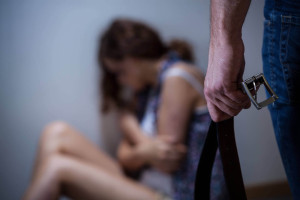If You Are Accused
If you have been accused of domestic violence in the State of New York or New Jersey, it’s imperative you regard the accusation very seriously and respond appropriately. The potential consequences to your career, reputation and rights can be long-term and significantly damaging. If you have children, the outcome of your domestic violence case can be used against you in a child custody dispute. While domestic violence laws serve a critical social purpose, an individual subject to false allegations, without proper legal representation, can quickly find themselves removed from their home and loved ones.
Many public and private companies—and virtually all government agencies—routinely conduct criminal background checks of applicants for employment. For liability reasons, many employers will not hire someone who has been convicted of a violent crime. Under federal law, such an individual is barred from owning firearms. If you are a police officer or security guard, you could be terminated, since you would not be allowed to carry a weapon. Given the potential consequences, it’s important to put your case in the hands of an experienced defense attorney as soon as possible. The attorneys at the Law Office of Yan Katsnelson represent individuals accused of domestic violence in both New York and New Jersey.
If You Are In Danger
Domestic violence can have severely harmful and long-lasting psychological and physical effects upon family members. If you or your children are suffering from any type of physical or verbal abuse, you need to act immediately to protect those you love, and yourself, and end the cycle of violence. Without proper legal representation, an abusive spouse or parent can remain in your home and continue to inflict harm on you and your children. In a divorce proceeding, he or she can get custody of your children. In order to prevent violence from controlling and damaging your life, contact the Law Office of Yan Katsnelson today for the best possible outcome.
Domestic Violence: General Legal Definition
Domestic violence comes in many forms and can range from physical and sexual assault, to verbal, emotional and physical abuse. Aggravated or simple assault, harassment and terroristic threats are also considered domestic violence offenses. Domestic violence can occur between spouses or former spouses, but the scope of the law also includes children, relatives, unmarried persons living together, individuals with a child in common, and those involved in an intimate relationship, including any current or former boyfriend or girlfriend. In the States of New York and New Jersey, domestic violence offenses are handled through both the criminal courts and the Family Court.
Orders of Protection
Orders of Protection are often issued in the case of Domestic Violence. An Order of Protection is a court order intended to protect an individual or group of persons, including families, from acts of violence, harassment, abuse, stalking, or other types of unacceptable behavior on the part of another person. In the criminal courts, such orders are available to any individual who has filed a charge and who feels they are in danger from another person. The request can be made through the law enforcement agency that the crime has been reported to, the District Attorney’s office, the victim assistance program or the Court. In some circumstances, if the victim does not request or wish an order of protection, the Court or the District Attorney’s office may request on the victim’s behalf.
Under certain circumstances, where the potential of imminent harm is deemed credible, a court may grant a Temporary Order of Protection based on the assertions of only one party. Issuance of a Temporary Order of Protection does not mean the underlying allegations are proven. Furthermore, before a Permanent Order of Protection is issued, both parties are given the opportunity to provide testimony and other evidence to the court, either in support of or in opposition to the requested Order. At the completion of the case, if the defendant is found guilty, or pleads guilty to a criminal charge, the court will then issue a Permanent Order of Protection.
Orders of Protection fall into two categories. A Full No Contact Order of Protection, or “Stay Away” Order, directs a defendant to stay away from the victim’s home, school, business, and place of employment. It also directs the defendant to refrain from communication with the victim, such as contact by telephone, mail, email, and voicemail, and through a third-party.
A Limited Order of Protection, or “No Offensive Conduct,” directs the defendant to refrain from assault, stalking, harassment, menacing, reckless endangerment, disorderly contact, intimidation, threats or any criminal offense or interference with the victim, designated witnesses to the alleged offense, and members of the family or household of such victims or witnesses. A Limited Order of Protection permits contact between the defendant and victim as long as the contact does not include any of the aforementioned conduct.
Orders of Protection, or the violation of an Order of Protection, may result in substantial penalties or consequences, many of which are not always anticipated. In addition to specifying that abuse must stop, these orders can severely restrict and place conditions around an alleged abuser’s parenting time and stipulate that he or she seek and receive treatment for addiction, anger management, or classes on parenting. If a person who is the subject of an Order of Protection attempts to contact the alleged victim in violation of the order, he or she could be charged with a separate crime and jailed.
If you believe you are in need of an Order of Protection, or are the subject of a request for an Order of Protection and have questions and concerns, contact the Law Office of Yan Katsnelson today.




